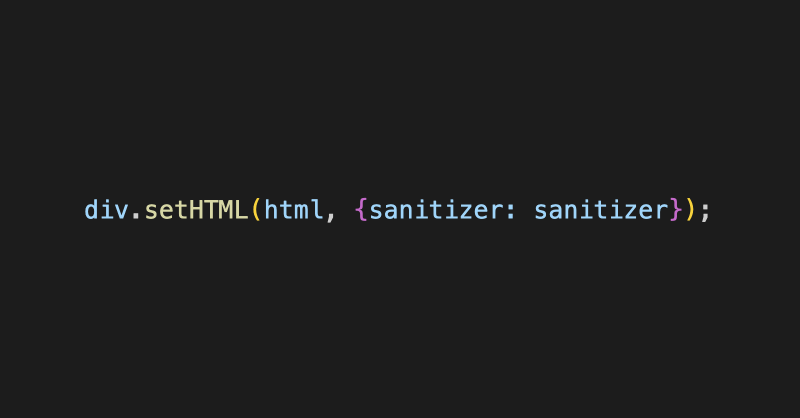Articles index Jeff Johnson (My apps, PayPal.Me, Mastodon)
June 5 2025
Today, Apple announced a self-funded study titled Global App Store helps developers reach new heights, supporting $1.3 trillion in billings and sales in 2024, but what interested me more was the subtitle:
For more than 90 percent of the billings and sales facilitated by the App Store ecosystem, developers did not pay any commission to AppleIn the same announcement, Apple brags at length about its "Investment in Developers":
Apple invests in tools and capabilities that make it easier for developers to distribute their apps and games, be discovered by users around the globe, and grow successful businesses.When you put these two claims together, it follows logically that most of the billings and sales facilitated by the App Store ecosystem take advantage of Apple's investment without paying any commission to Apple.
The positive tone of today's announcement is in stark contrast to an Apple statement from 2019 addressing Spotify's claims:
After using the App Store for years to dramatically grow their business, Spotify seeks to keep all the benefits of the App Store ecosystem — including the substantial revenue that they draw from the App Store’s customers — without making any contributions to that marketplace.Of course, even at that time, six years ago, there was a fundamental distinction between apps that had to pay a commission and apps that didn't, so Apple needed to explain and justify the distinction somehow:
A full 84 percent of the apps in the App Store pay nothing to Apple when you download or use the app. That’s not discrimination, as Spotify claims; it’s by design:
- Apps that are free to you aren’t charged by Apple.
- Apps that earn revenue exclusively through advertising — like some of your favorite free games — aren’t charged by Apple.
- App business transactions where users sign up or purchase digital goods outside the app aren’t charged by Apple.
- Apps that sell physical goods — including ride-hailing and food delivery services, to name a few — aren’t charged by Apple.
The only contribution that Apple requires is for digital goods and services that are purchased inside the app using our secure in-app purchase system.
It makes sense that Apple would charge a commission for using its In-App Purchase system, as well as its In-App-Store purchase system, for the small minority of apps (like mine) that are upfront paid. I don't think anybody objects to that. The objection is that Apple forces some developers—but not others!—to use its purchase system. Indeed, Apple has fought tooth and nail to preserve its authority to impose Apple IAP on third-party developers, relenting only when forced by governments, for example as a result of the European Union Digital Markets Act or a recent United States district court injunction. Apple continues to appeal these legal decisions.
I've always been baffled about why a small minority of developers, including small indie developers like me, are required to finance the App Store ecosystem for every developer, including the developers of "free" apps that nonetheless generate billions of dollars per year from billings and sales. Why is Apple's IAP not required for all purchases in all App Store apps? It's difficult for me to see a principled distinction between the apps that have to use Apple IAP and the apps that don't. It seems completely arbitrary. Apple made a big deal about Spotify not making "contributions to that marketplace," yet Apple also openly (and hypocritically) admits that most of the financial transactions that occur in App Store apps are not contributing to that marketplace either. There are a lot of "free riders" in the App Store.
It's true that I and other members of the App Store Small Business Program, who make less than $1 million per year in the App Store, currently pay only a 15% commission rather than a 30% commission. This was not always true: the Small Business Program didn't open until 2021, as a result of the settlement of a court case, Cameron, et al. v. Apple Inc. In the 12+ years of the App Store between 2008 and 2020, the smallest indie developers paid the same 30% commission as the largest corporate developers. By the way, from a legal perspective, the Small Business Program could end soon, as early as next week! From the final settlement approval filed June 10, 2022:
In terms of structural relief, under the Settlement, Apple has agreed to maintain the 15- percent commission tier for U.S. developers enrolled in the Small Business Program for at least three years after Final Approval.It's extremely unlikely that Apple would (further) enrage developers by announcing the end of the App Store Small Business Program next week at WWDC, but I wouldn't be surprised to see it discontinued before the end of this year. Some people claim that Apple was going to introduce the Small Business Program anyway, but Apple has stated on the legal record that the court case "was a factor."
On January 1, 2021, Apple introduced the App Store Small Business Program (“SBP”). The structure and timing of the SBP was driven by Apple’s desire to accelerate innovation and help propel small businesses forward with the next generation of groundbreaking apps on the App Store, in light of the Coronavirus pandemic. Apple also acknowledges that the pendency of this lawsuit was a factor in its decision to adopt the SBP.Furthermore, the other factor was stated to be "the Coronavirus pandemic," but that's over now too, so from Apple's own perspective, none of the original motivations remain.
Let's return from the aside of the App Store Small Business Program to the central issue of free riders in the ecosystem. The App Store has often been compared to a retail store, but in a number of respects it's unlike any retail store in the world. Again, most App Store apps are free to download and use, which is "by design," according to Apple. Which retail stores allow you to walk out of the store with 84% of their products while paying nothing to the store owner? You'd be arrested immediately for shoplifting! In general, every product in a retail store is paid upfront by the consumer. Sometimes grocery stores have a few free samples, but that's about it. For very expensive products, such as furniture, you can purchase them on a financing plan, making payments over a number of months, but you're still required to sign legal documents making yourself liable for the entire amount before you walk out of the store with the products. There's no such thing as "free" here. And there's no such thing as In-Product Purchase. You don't take home a refrigerator or a couch and then make purchases inside the refrigerator or couch (though some of your loose change may fall under the couch cushions).
It's also worth noting that retail stores usually purchase their stock upfront, either from a wholesaler or from the manufacturer. Thus, there's no "commission" or "percentage" paid by the manufacturer. Rather, the retail store places a markup on the products in order to make a profit on sales. Commissions and percentages are more applicable to consignment stores, often reselling used goods, than to retail stores selling new goods. In any case, every product in a retail store or in a consignment store makes "contributions to that marketplace." There are no free riders. You don't have a situation 90% of the sellers get to benefit from the store while the store itself gets nothing in return from those 90%.
Whenever Apple or Apple apologists claim that App Store commissions are required in order to finance the iOS platform, it's nonsense. To be clear, I have no objection to Apple having an App Store, and for placing requirements on App Store developers. What's unique about the iOS platform, though, is that the App Store is the sole method of distribution for third-party software. This is unlike the Mac, and the Apple II before that; iOS was an anomaly in Apple's long computing history. (Remember also that you could "sideload" your own music onto an Apple iPod.) There's a Mac App Store—sadly, a neglected clone of the iOS App Store, which was itself a clone of the iTunes Music Store—but using the Mac App Store is optional for Mac developers, and many of them opt out of the Mac App Store, choosing to distribute software independently. As an App Store developer myself, I can tell you that the Mac App Store generates a lot less revenue than the iOS App Store. To be fair, my own App Store apps generate approximately equal revenue on the iOS and Mac App Stores; the difference is that I'm relatively high in the top charts in the Mac App Store (at least for upfront paid apps), whereas I'm not even remotely in the vicinity of the top charts in the iOS App Store. Most of the billions of dollars per year generated by the App Store come from iOS. So the question is, given that the Mac App Store is optional for developers and not particularly lucrative for Apple, how does Apple finance the Mac platform?
The answer is obvious: the same way Apple finances the iOS platform, by selling hardware. We know from public quarterly financial reports that Apple makes an ungodly amount of money from hardware. Third-party developer platforms on Apple hardware have always paid for themselves via hardware sales. It was even a marketing slogan: "There's an app for that." Third-party software makes the first-party hardware much more valuable. Remember how VisiCalc was the "killer app" on the Apple II? Apple made $0 directly from VisiCalc but made a lot of money indirectly by selling computers to VisiCalc users. Imagine if iPhone had no third-party software: Google and Android would absolutely eat Apple's lunch. The iOS platform is not just a competitive advantage but a competitive requirement.
As I see it, there are two fundamental problems with the iOS App Store and In-App Purchase mandates. (1) Apple is "double-dipping" on developers, benefitting in two separate ways from their software, both indirectly from increased hardware sales and directly from App Store sales. (2) The IAP mandate applies only to a small minority of developers, who are forced to (allegedly) support the ecosystem for the benefit of the majority, who are free riders. And the worst part is that small indie developers are paying the "Apple tax" to finance corporate welfare for a bunch of wealthy app developers.
Jeff Johnson (My apps, PayPal.Me, Mastodon) Articles indexPrevious: Insane web design on apple dot com
.png)



![ChatGPT made me delusional [video]](https://www.youtube.com/img/desktop/supported_browsers/firefox.png)
